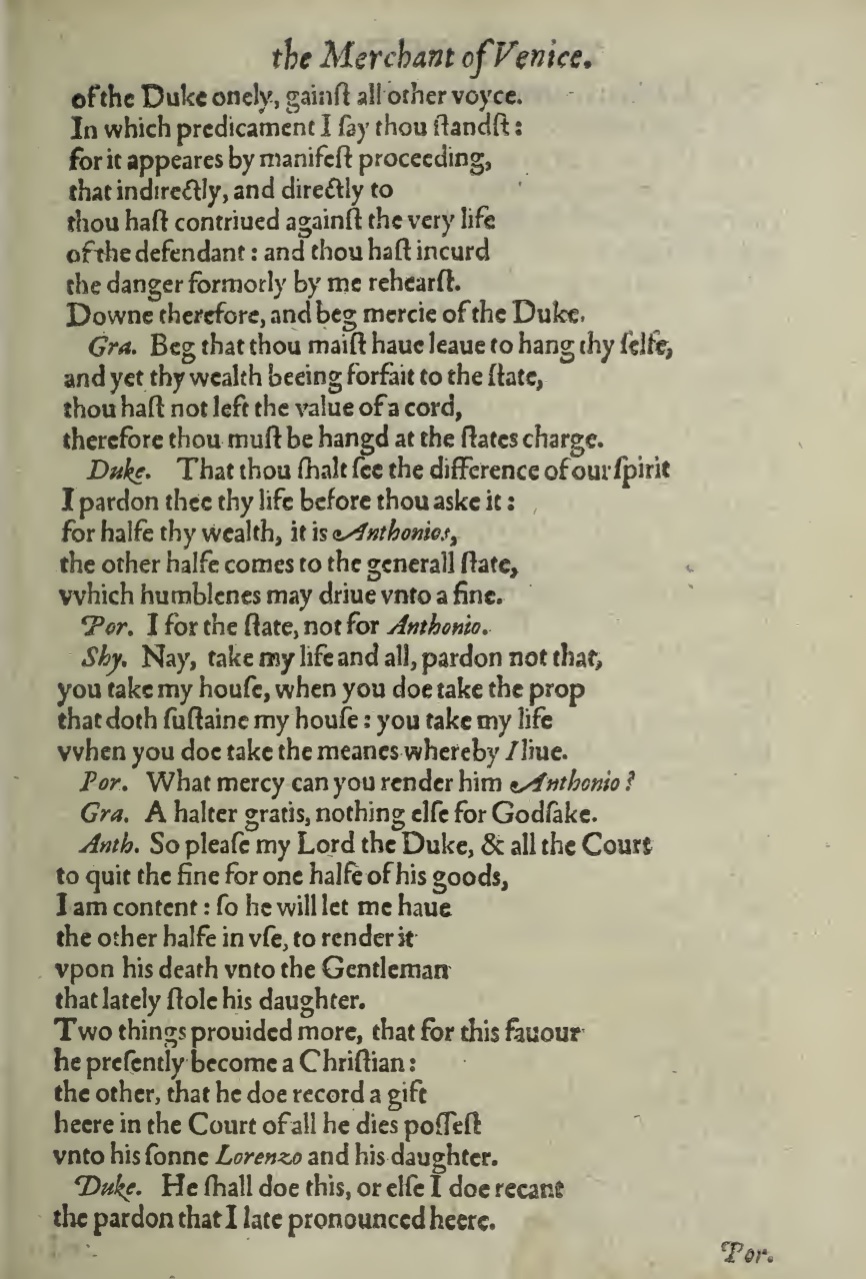of the Duke onely, gainst all other voyce.
In which predicament I say thou standst:
for it appeares by manifest proceeding,
that indirectly, and directly to,
thou hast contriu(v)ed against the very life
of the defendant: and thou hast incurd
the danger formorly by me rehearst.
Downe therefore, and beg mercy of the Duke.
Gra. Beg that thou maist hau(v)e leaue to hang thy selfe,
and yet thy wealth beeng forfait to the state,
thou hast not left the value of a cord,
therefore thou must be hangd at the states charge.
Duke. That thou shalt see the difference of our spirit,
I pardon thee thy life before thou aske it:
for halfe thy wealth, it is Anthonios,
the other halfe comes to the generall state,
which humblenes may driu(v)e v(u)nto a fine.
Por. I for the state, not for Anthonio.
Shy. Nay, take my life and all, pardon not that,
you take my house, when you do take the prop
that doth sustaine my house: you take my life
when you doe take the meanes whereby I liu(v)e.
Por. What mercy can you render him Anthonio?
Gra. A halter gratis, nothing else for Godsake.
Anth. So please my Lord the Duke, & all the Court
to quit the fine for one halfe of his goods,
I am content: so he will let me hau(v)e
the other halfe in v(u)se, to render it
v(u)pon his death, v(u)nto the Gentleman
that lately stole his daughter.
Two things prou(v)ided more, that for this fauou(v)r
he presently become a Christian:
the other, that he doe record a gift
heere in the Court of all he dies possest
v(u)nto his sonne Lorenzo, and his daughter.
Duke. He shall doe this, or else I doe recant
the pardon that I late pronounced here.
Por.
